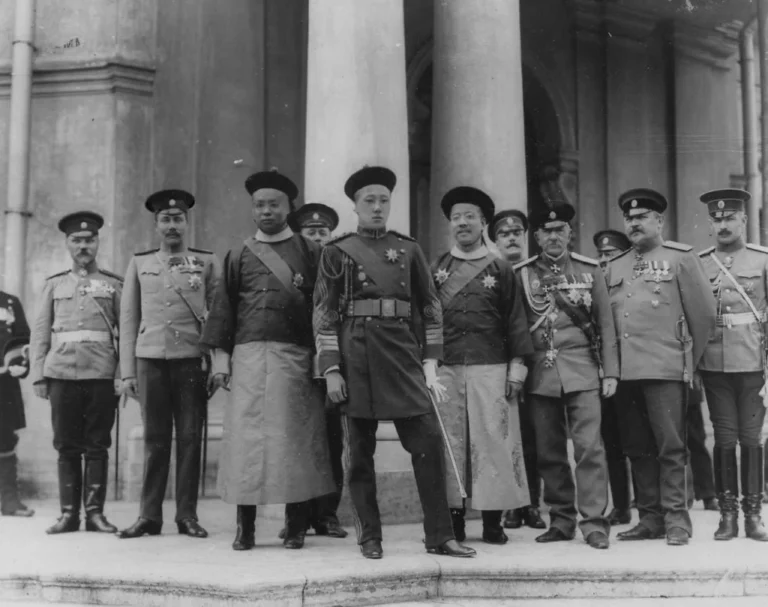
Just until a few years ago, China’s strategy of penetration and positioning abroad seemed quite straightforward. It sought to engage elites at the state level in exclusive and non-transparent agreements, coupled with the provision of selective benefits of various types. But while this might have been the initial conceptualization of influence by Beijing, various shifts are afoot. Importantly, these transitions are driven by various dynamics. Some appear to be a consequence of design and strategy, while others are decentralized responses to evolving local circumstances and personal style. There is geographical variance as well as divergence in the degree to which local counterparts are leveraging the support of Chinese institutions. Difference in priority assigned by Beijing also accounts for variety of incidence of these shifts. Yet, transformation is in train and its contours are becoming clearer.
State Level
The earlier iteration of Chinese external engagement resembled a series of crude applications of various available governance techniques rather than a singular, well-structured and thought-out line of behavior. But over time, Beijing has undergone a process of learning and improvement along numerous dimensions from conceptual framings to coordination and implementation. From this perspective, its external activities increasingly approach a form of statecraft which is better framed and institutionalized.
China’s initial efforts to enter and consolidate its presence in various countries focused almost exclusively on central government and its institutions. This is now being complemented by a rising focus on local actors and institutions such as mayors, governors and municipal councils. While not a new phenomenon, it appears to be expanding and intensifying. In the EU context, subnational diplomacy is securing access to EU-funded projects which is more challenging at central level. Opportunities for more personalized diplomacy provide some of the attractiveness but local governments are often weaker in terms of applying restrictive China-related policies.
Beijing is also increasingly nudging its partners to go beyond participation in various thinly institutionalized initiatives such as the Belt and Road into its denser and more elaborately institutionalized international governance networks. The latest example of this shift is the operational start of the International Organisation for Mediation, spurred by China and headquartered in Hong Kong. In the Western Balkans, Serbia is among the founding members of the structure. Southeast Europe (SEE) countries such as Croatia, Greece, Hungary, Serbia, and Romania are members of the China-led Asian Infrastructure Investment Bank.
China’s approach is also transitioning from basic aims of entry and positioning towards more complex strategic goals. This shift to second-order aims is visible in the linkage between infrastructural hardware and artificial intelligence and the strategic interaction between the two. For instance in the case of Huawei and DeepSeek, this tries to capture key future industries and systems and embed AI across industries. In SEE, the ground for this is being prepared by Huawei itself and via friendly companies such as the Hungarian 4iG which owns telecoms in Montenegro and Albania and is moving into North Macedonia.
Beijing is also learning to partner with other countries rather than simply rely on its own institutions and capacities. Hungary has performed the function of financial conduit for Chinese loans to North Macedonia. China and Russia have been working together in the Western Balkans in the field of disinformation, particularly in the context of the war on Ukraine. In Bosnia and Herzegovina, the Chinese company, Baosteel, and the Saudi firm, Aramco, have registered a joint entity to work in the energy field. Meanwhile, Serbia has been helping China position itself better in Bosnia for a long time.
Society Level
A distinct feature of initial Chinese diplomatic strategy was its excessive focus on the state and its institutions and elites. This predominantly entailed political elites, gradually reaching out to economic and social elites. But there is a shift towards a focus on communities and institutions across societies. For instance, in Bulgaria, Chinese language teaching in kindergartens and primary schools is spreading. Another indication is the accelerating augmentation of public diplomacy through cultural institutes rather than the discredited Confucius Institutes. The approach also means an emphasis on working with academia, media, civil society organizations, etc.
Beijing is attempting to complement its mediated interaction with elites with activities aimed at direct, immediate and unmediated communication and interaction with ordinary citizens. One example of this transformation is the increasing prevalence of cultural people-oriented events such as the dragon boat races and festivals held in more and more countries. The latest example is the promotion of the double ninth Chinese holiday, officially known as Senior Citizens’ Day which is popularized beyond China, including by commercial entities such as ‘Hainan Airlines’. Increased media cooperation is another dimension of this transition.
Beijing is also going beyond situational engagement with individuals in key institutional or other positions and is increasingly interested in creating friendly networks and communities. This is a more structural approach and admittedly, harder to implement and manage. One example is the community created around the nexus between Veliko Tarnovo University and the local Confucius Institute in Bulgaria. These horizontal links have matured and expanded, involving cooperation, joint research projects, exchange programmes, thereby creating a consolidated and durable network.
Focus is also moving from engagement with key institutions such as ministries, hub structures like the academy of sciences, regulatory agencies, etc., to lower-order, secondary organisations. In other words, China is opening itself to less central actors. For instance, rather than simply focusing on ministries of economy, Chinese institutions are directly engaging with local companies and branch organizations to create contacts and facilitate partnerships. Beijing is also expanding its capacity to identify and engage with smaller, specialized institutions of interest to the Chinese side, for instance in the field of geology in Argentina.
Economy Level
China is also diversifying its approach in moving from an emphasis on finance and loans towards the wider economy. To compensate for the lack of green field, productive investments in many countries, Beijing is encouraging local companies to take on board other options such as joining Chinese e-commerce platforms in order to sell their products or strike joint partnerships with Chinese companies and integrate into their business strategies. In Germany, Beijing has long been interested in acquisitions of local companies in various sectors. In Serbia, Chinese firms are ever more invested in the green energy sector. Further, Chinese venture capital (VC) funds are increasing their interest in non-Chinese start-ups.
This transition captures a movement from one-off, situational activities to longer timeframes of presence and embedding. In economic terms, the approach is beyond individual deals but rather positioning in entire industries of structural importance. For example, in Slovakia, numerous companies (Gotion High-Tech and Shenzhen Yilian, Yanfeng Automotive Interiors, Jiangsu Xinquan Automotive Trim, Qingdao Soft Control, Fuyao Glass, CRRC Bogie Co.) are now present in the automotive and its related industries. Notably, some have already acquired controlling stakes in key industries in the country.
Once established, China-friendly communities are being leveraged by Beijing to advance its interests and achieve its goals. A case in point is the Bulgarian-Chinese chamber for industrial development. It is engaged in an ever-expanding range of activities beyond economic cooperation and involve promotion of key foreign policy concepts and platforms such as the Belt and Road Initiative (BRI), the Silk Road, multipolarity, etc. The chamber is helping implement Chinese initiatives in the cultural, educational and local government cooperation fields.
Beijing is also diversifying its toolbox when it comes to financial and investor engagement. Until recently, funds were predominantly directed by Chinese state banks under the policy umbrella of the BRI and through state-to-state agreements. Presently, there is a rising multitude of actors which are getting involved. They include companies from numerous sectors as energy, automobiles, batteries, IT, advanced manufacturing, venture capital funds, policy banks such as the Asian Infrastructure Development Bank, among others. This approach allows a much more pervasive and diversified entry and positioning of Chinese economic interests.
Conclusions
In conclusion, China is diversifying the toolbox of its penetration and consolidation of positions and influence across an expanding array of countries. It is doing so utilizing various dynamics which is a source of strength and resilience. Its authorities now have the benefit of over a decade of experience since the intensification of the implementation of the country’s internalization strategy. During that time, they have gained valuable insights about local actors, cultures, institutions and policies and have adjusted their outreach activities. This accumulated knowledge is coupled with the country’s growing self-confidence, ambitions and resources. Importantly, Beijing is not casting aside its older approaches which is complicating Western responses. Ultimately, we are looking not at strategy replacement but strategy augmentation.
Written by
Vladimir Shopov
Vladimir Shopov is a visiting fellow with the Asia programme at the European Council on Foreign Relations. He is a consultant, researcher and columnist with 20 years of experience and has worked with numerous companies from Austria, Belgium, Germany, Spain, Sweden, UK, US and others. Shopov has also worked with the European Parliament, MEPs, the European Commission, the British Council and many other European and Asian policy and research centres. He was adviser on EU affairs to the minister of home affairs (1997-1998), counsellor at the Bulgarian mission to the EU in Brussels (1998-2001), EU adviser at the British embassy in Sofia (2002-2003) and adviser to the minister of foreign affairs (2014-2017). He is a graduate in political science and comparative politics with MA degrees from Sofia University St. Kliment of Ohrid and the London School of Economics and Political Science. He has also studied in Oxford University, London University (Queen Mary College), New School for Social Research, California State University, Peking University and King’s College London.


